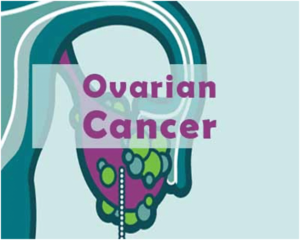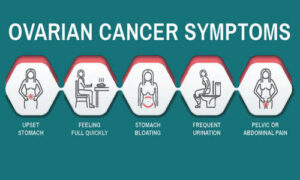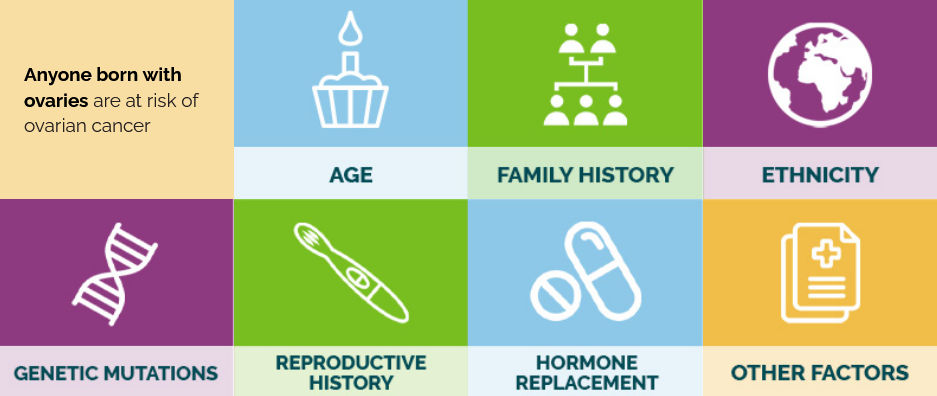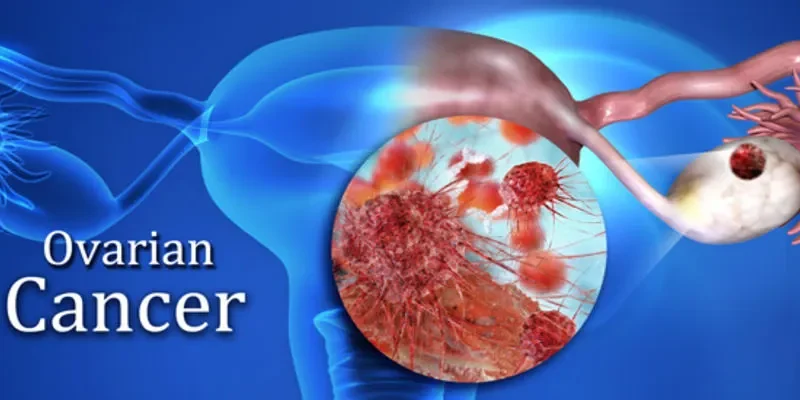Ovarian cancer is the third most common cancer in India among women. With the cases increasing every year, it’s a matter of grave concern.
Ovarian cancer develops in the ovaries, peritoneum, and fallopian tubes. The ovaries, a part of the women’s reproductive system, lie on either side of the uterus. They produce eggs and hormones, such as progesterone and estrogen.
 Dr. Sandeep Nayak, an experienced surgical oncologist in India, explains that ovarian cancer is easier to treat when it is confined to the ovaries.
Dr. Sandeep Nayak, an experienced surgical oncologist in India, explains that ovarian cancer is easier to treat when it is confined to the ovaries.
But sadly, it goes undiagnosed in the early stages, as there are no symptoms. Cancer has already metastasized to the abdomen and pelvis when the symptoms appear, which is challenging to treat.
Ovarian cancer can affect any woman, but some factors can potentially increase the risk of developing the disease. We cannot change some aspects as being older, having the genetic mutations BRCA1 or BRCA2, and having a family history of cancers.
Being an expert in ovarian cancer treatment in Bangalore, India, Dr. Sandeep Nayak often gets queries from his patients about how to prevent ovarian cancer.
He says it is not possible to prevent ovarian cancer at present, but fortunately, there are a few ways to help lower the risk. He believes that people will be attentive to the symptoms if they know the risks and visit the doctor as soon as possible.
Continue reading to learn about the symptoms, risk factors, and ways to lower the risk of ovarian cancer.
Let’s begin with the symptoms of ovarian cancer.
 They include:
They include:
- Back or stomach pain
- Unusual discharge or bleeding from the vagina
- Bloating
- Discomfort near the pelvis
- Difficulty eating
- Weight loss
- Frequent need to urinate
- Changes in bowel habit
Other medical disorders might bring on these symptoms. Doctors can identify the disease using some tests, including blood tests and pelvic examinations.
Now, let’s move on to the risk factors for ovarian cancer.

Some of the risk factors that increase the chances of developing ovarian cancer are:
- Family history of breast or ovarian cancer
- Overweight
- Age above 50 years
- Endometriosis
- Inherited gene mutations
- Difficulty conceiving or giving birth
- Previously having colon, breast, or uterine cancer
- Hormone replacement therapy
Dr. Sandeep Nayak, a leading oncologist for ovarian cancer treatment in Bangalore, states that if you have more than one risk factor, please talk to your doctor about it and the possible screening tests.
Check out ways to help decrease your risk of developing ovarian cancer:
Giving birth and breastfeeding
In comparison to women who do not give birth, those who do have a lower risk of developing ovarian cancer, especially before the age of 30. Having more children further reduces the risk.
Also, breastfeeding mothers have a lower risk of having ovarian cancer, which decreases the longer, you nurse
Oral contraceptive
 According to research, ovarian cancer risk is up to 50% lower among women who have used oral contraceptives in the past. The risk of developing ovarian cancer decreases with continued use of the pill.
According to research, ovarian cancer risk is up to 50% lower among women who have used oral contraceptives in the past. The risk of developing ovarian cancer decreases with continued use of the pill.
However, consult your doctor to see if oral contraceptives suit you because not everyone responds well to them. Further, they can cause other complications, such as blood clots in women who smoke.
Diet and Exercise
The risk of ovarian cancer decreases by managing your weight. You will have to exercise regularly and have a healthy, balanced diet.
Certain foods that are high in vitamin A, such as leafy green vegetables, carrots,and sweet potatoes, as well as foods like eggs, beans, almonds, etc., that are rich in vitamin D, also lower your risk of having ovarian cancer.

Lifestyle changes
Avoiding tobacco use and exposure can reduce your chance of ovarian cancer and many other cancer types.Abstaining from tobacco use, controlling your alcohol intake, eating healthily, and exercising minimizes your ovarian cancer risk.
Alternative treatment for hormone replacement therapy
As hormone replacement therapy is one of the risk factors for ovarian cancer, it would be better if you could ask your doctor about alternative treatments for HRT after menopause.
Preventive surgical procedures
Lower risk of ovarian cancer is linked to having some gynecological surgeries, such as:
- Hysterectomy (removal of the uterus)
- Tubal ligation
- Removal of either fallopian tubes (salpingectomy), ovaries (oophorectomy), or both.
However, according to specialists, you should undergo these procedures for genuine medical needs rather than for their effect on ovarian cancer.
Suppose you are undergoing a hysterectomy for medical reasons, and your family has a history of ovarian or breast cancer. In that case, you might consider having a bilateral salpingo-oophorectomy, which involves removing both ovaries and fallopian tubes.
Further, according to studies, premenopausal women with BRCA gene mutations who have removed their ovaries have a lower risk of developing breast and ovarian cancer.
It decreases the risk of breast cancer by more than 50 percent and ovarian cancer by 85 to 95 percent.
Outlook
Each of the above points has its pros and cons. Some are easy to follow, whereas some need surgical intervention. Due to this, certain preventive methods may not be suitable for everyone.
Dr. Sandeep Nayak, one of the best oncologists in India, recommends that you should discuss your worries about developing ovarian cancer with your doctor. They can assess your level of risk and provide a preventive plan that is suitable for you.

